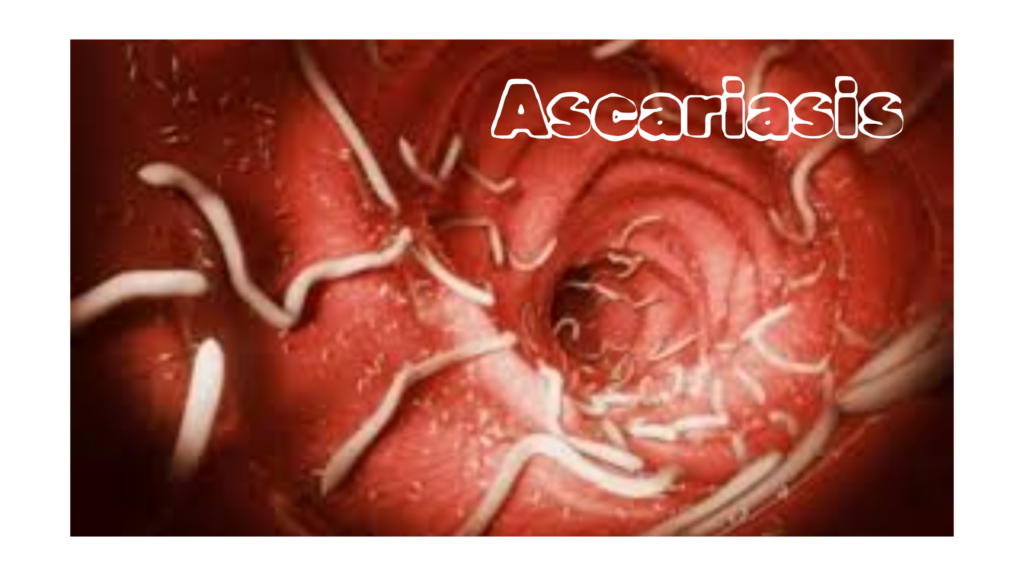🪱 Ascariasis – Overview
Ascariasis is a parasitic infection caused by the roundworm Ascaris lumbricoides. It is one of the most common intestinal worm infections worldwide, especially in areas with poor sanitation.
🧬 Cause
- Ascaris lumbricoides is a large roundworm (can grow up to 30 cm long)
- Infection happens when someone swallows eggs from contaminated:
- Food
- Water
- Soil
- Hands (especially in children who play in dirt)
🔄 Life Cycle of Ascaris
- Eggs are ingested and hatch in the intestine
- Larvae migrate through the blood to the lungs
- They move up the airway, are swallowed, and return to the intestine
- There, they mature into adult worms and lay eggs, which are passed in feces
⚠️ Symptoms
Many people have no symptoms, especially with a light infection. Symptoms depend on the number of worms and the stage of infection.
🫁 Lung Stage (Larval Migration):
- Cough
- Wheezing
- Shortness of breath
- Fever (can mimic pneumonia or asthma)
🪱 Intestinal Stage:
- Abdominal pain
- Nausea, vomiting
- Diarrhea or constipation
- Worms in stool or vomit
- Severe cases: Intestinal blockage, especially in children
🧪 Diagnosis
- Stool test: Detects Ascaris eggs under a microscope
- Imaging (X-ray, ultrasound, CT): In cases of obstruction or heavy worm load
- Blood tests: May show increased eosinophils (a type of white blood cell)
💊 Treatment
- Antiparasitic medications:
- Albendazole
- Mebendazole
- Ivermectin (less commonly used)
- Single-dose treatment is usually effective
- Surgery may be required in rare cases of intestinal blockage
🛡️ Prevention
- Wash hands with soap, especially before eating
- Wash fruits and vegetables thoroughly
- Drink clean, safe water
- Use proper sanitation (toilets, latrines)
- Deworming programs in endemic areas (especially for children)
🌍 At-Risk Areas
- Common in tropical and subtropical areas
- Especially affects children in developing countries
